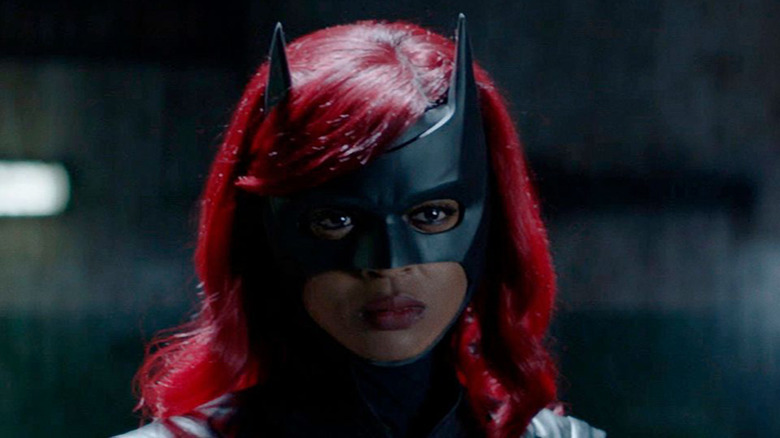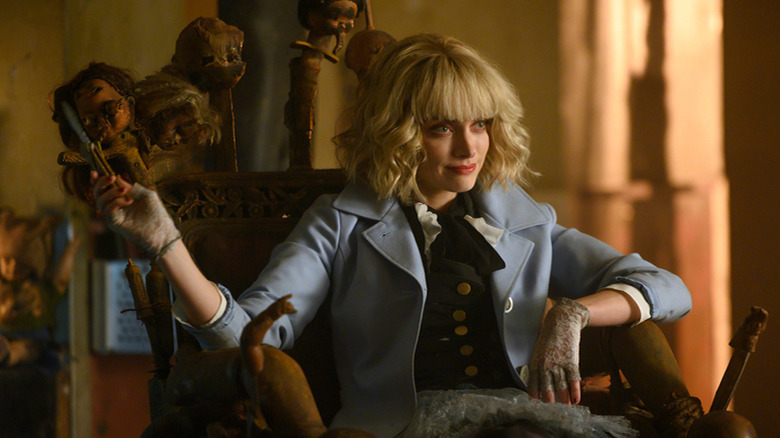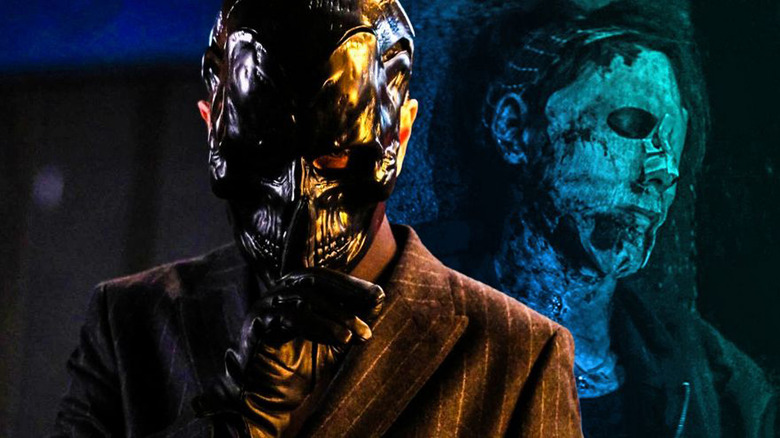The Ending Of Batwoman Season 2 Explained
Superhero TV shows and movies offer up lots of escapism, but they rarely acknowledge how awful it would be to actually live as a masked vigilante. The CW's "Batwoman" is one of the few superhero properties that's honest about the toll it takes on someone's life. And in the Season 2 finale, hero Ryan Wilder (Javicia Leslie) is forced to question whether she's even capable of the job.
The "Batwoman" Season 2 finale, entitled "Power," aired on June 27 on The CW. And plot-wise, it has lots of moving parts. Season 2's big bads, Circe (Wallis Day) and Black Mask (Peter Outerbridge), finally launch their plot to overthrow Gotham's government and institute anarchy. That leads to the climactic showdown we've been waiting for all season. Ryan and the Bat Team do indeed save Gotham, although their victory leaves the door open for more classic Batman villains to show up in "Batwoman" Season 3.
But the Season 2 finale is all about Ryan and her growth as a character. Here's what the finale really means.
In the Season 2 finale, Ryan is tested like she's never been before
Batwoman is the sort of superhero whose job is even more difficult than a typical superhero's. Not only does she have to keep Gotham safe, but she has to live up to the larger-than-life legacy of her predecessor. Season 2's Batwoman, Ryan Wilder has an even more difficult task than that, because she also has to replace the last Batwoman, Kate Kane (originally played by Ruby Rose, then Wallis Day in season 2). Throughout Season 2, Ryan's central conflict as a character has been her doubt about whether she can live up to both of her predecessors. In the finale, that shaky self-image was challenged like never before.
As all superhero fans know, Batman is one of the few caped crimefighters who doesn't have superpowers. He just has his suit and its high tech gadgets. Batgirl is the same way. At the beginning of the Season 2 finale, the supervillain Black Mask causes a city-wide blackout that renders Batwoman's suit inoperable. When that happens, Ryan loses the one advantage she thought she had. But like many self-doubting main characters, Ryan learns that she always had what it takes to win inside of her.
In the end, it takes a village to save Gotham
Ryan's real "superpower" is her ability to rely on other people. Bruce Wayne might call that a weakness, but in Ryan's case it's a strength.
At first, losing the Batwoman suit makes Ryan think she's powerless against Circe and Black Mask, and she even tries to resign. But then Ryan enlists the help of another supervillain, Alice aka Beth Kane, to help her take on the baddies. You might remember Alice as the leader of the gang who murdered Ryan's mother, and thus is the reason why Ryan became Batwoman in the first place. Another superhero might have never forgiven Alice, but Ryan is able to see the good in her enemy and turn her into an ally. With Alice on her side, Ryan is much stronger, but Circe and Black Mask are still formidable opponents. The moment that finally gives Ryan the strength she needs happens during their final showdown, when the entire city displays homemade Bat Signals to show their support.
It's difficult to imagine most versions of Batman getting that kind of love. Usually, he's depicted as a loner who fights to keep Gotham City safe, but whom the city never quite embraces. In many depictions, it's an open question whether Batman actually wants to help his fellow Gothamites, or whether he just wants to punish criminals for what happened to his parents. But while Ryan's original reason for fighting crime might have been revenge, she genuinely does want to help the city, and that's what helps her win. Ryan loves people, and people love her back. That's sort of the antithesis of Bruce Wayne.
It's also difficult to imagine Bruce Wayne doing what Ryan does next: building a community center. There are many ways to serve the greater good, but Ryan's is healthier than most.


